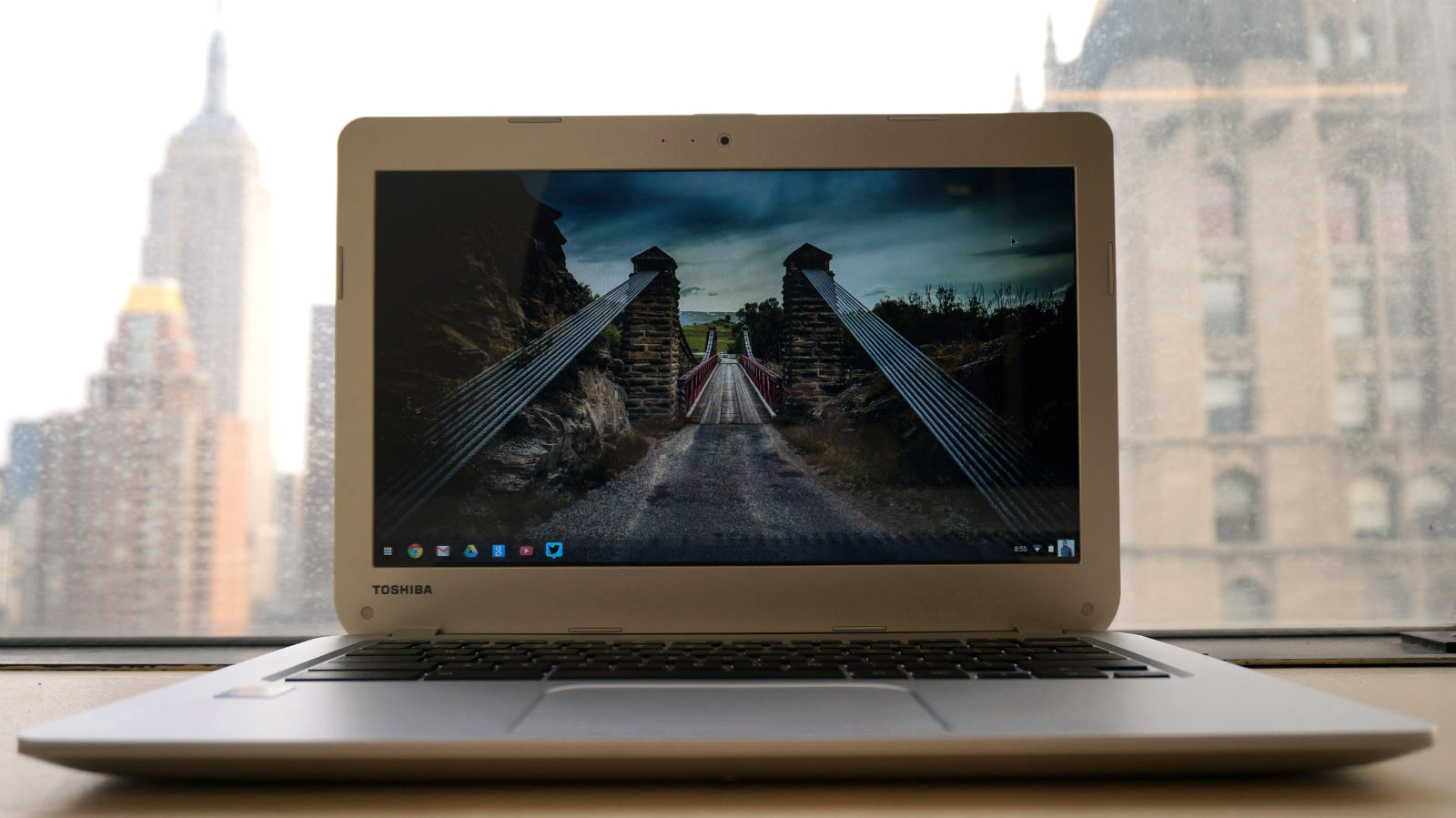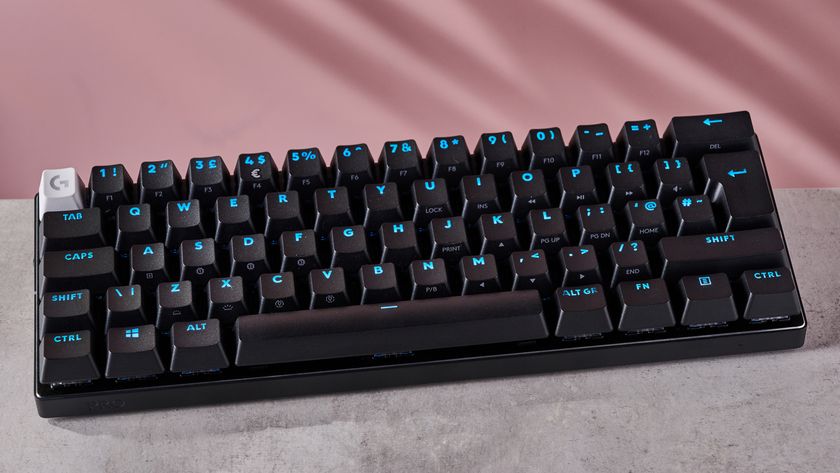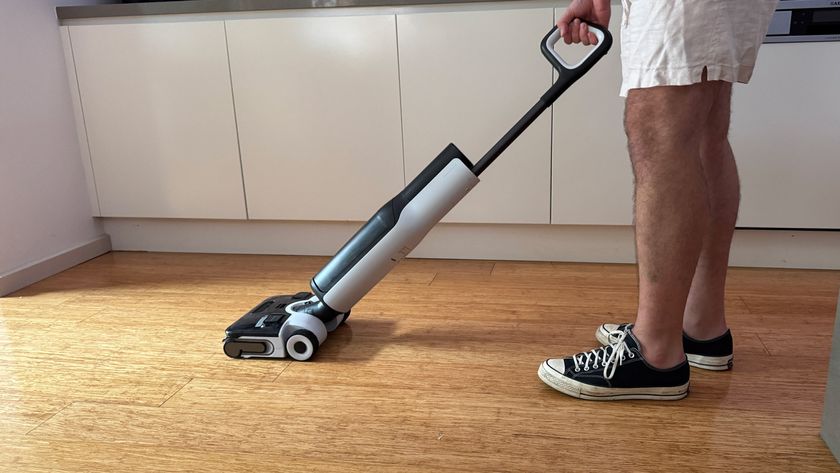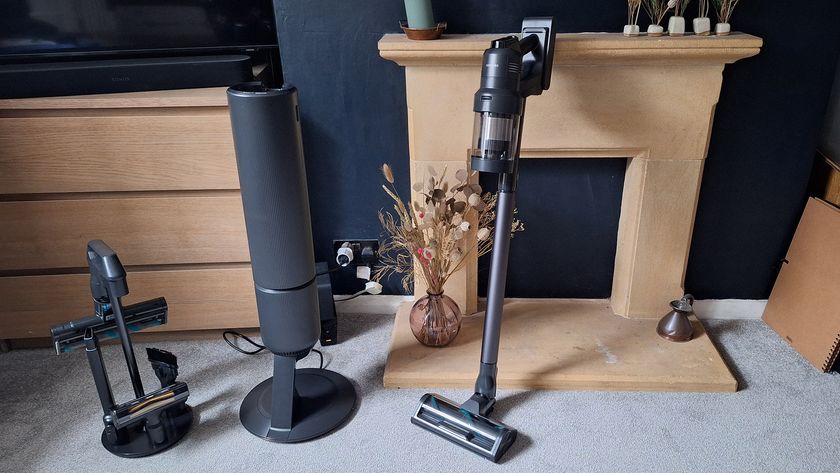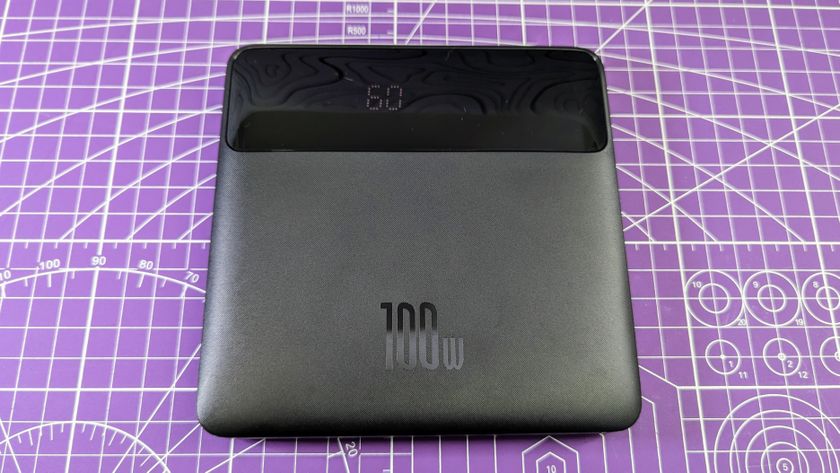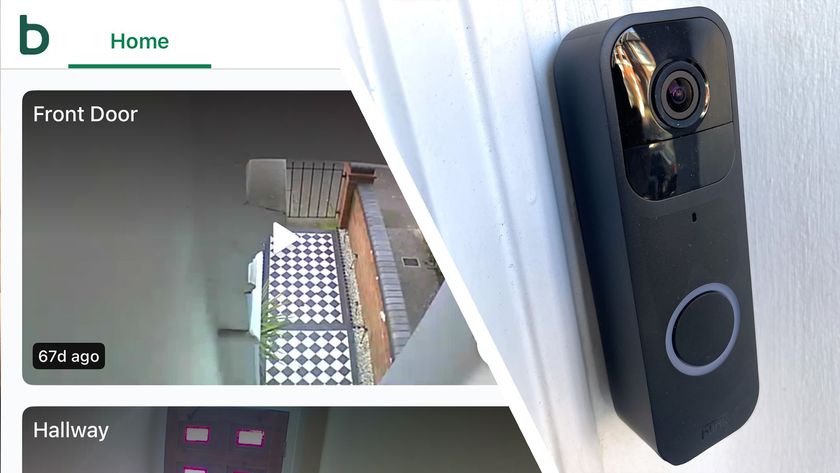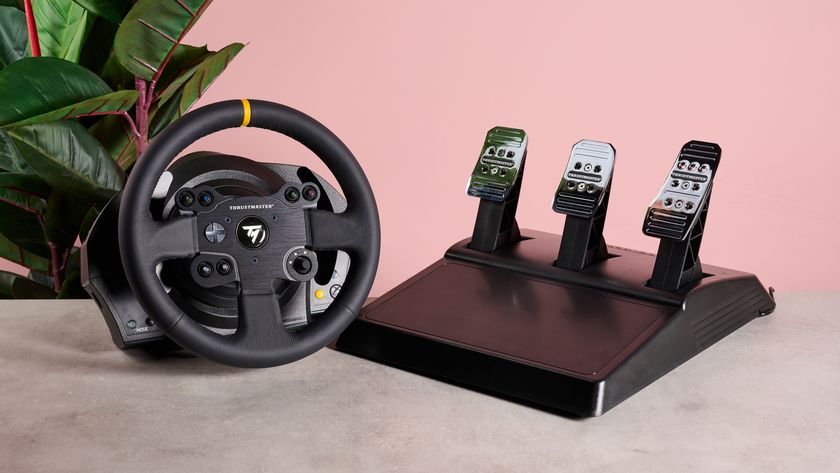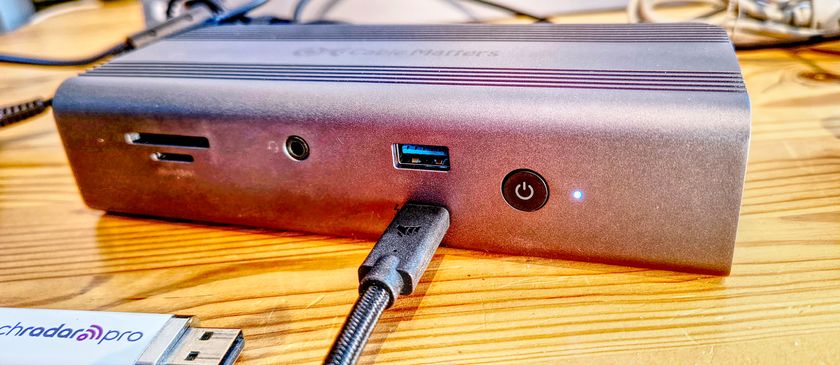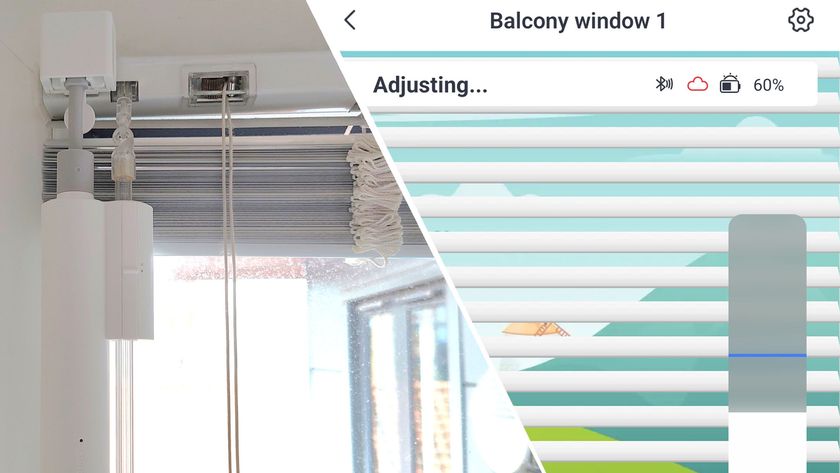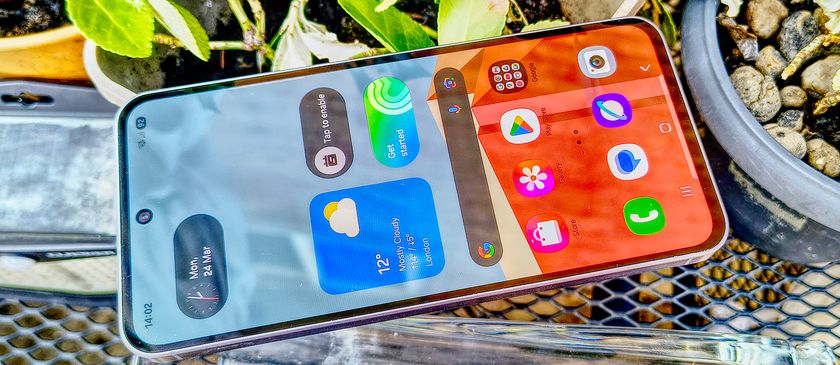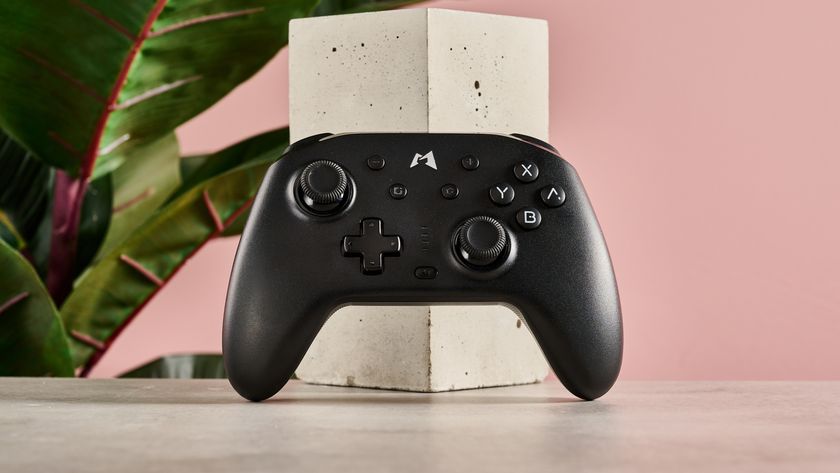Why you can trust TechRadar
Since this is a relatively new operating system we're dealing with, there aren't many – if any – synthetic benchmarks to measure this machine's power. So we'll be relying on my own observations after a week with the plastic framed power sipper. That's right, this thing can go all day.
Given that Chrome OS is basically a launcher for the Chrome browser, I ran all of my usual apps through Google Chrome tabs to test the machine's battery life. Running over 15 Chrome tabs, including TweetDeck, two email clients, a private chat web app, and Spotify's web player, the Toshiba Chromebook lasted 6 hours and 16 minutes. This test was conducted at about 70% screen brightness and with audio streaming to a Bluetooth speaker.
That's not quite as lengthy as Toshiba's claim to 9 hours, but most definitely demands your attention. Lasting over 6 hours running all of these tasks is a feat that most laptops only aspire to. Granted, we're looking at a laptop running a barely-HD screen and one of the most power-friendly processors around.
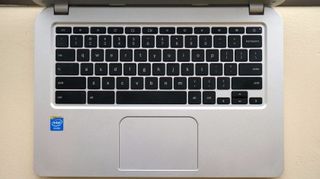
If you were to disable Bluetooth and turn down the brightness a few notches, I'd say you might squeeze out another 30 minutes or more out of this Chromebook. Plus, I found that it charges super fast – about 90 minutes from around 5% to full.
Low-power in more ways than one
While testing the battery, I couldn't help but notice that Chrome OS is most certainly not without its limitations. Stressing Google's browser as much as I did produced some nagging issues, like skipping audio, unresponsive pages and slowdown when switching between open tabs.
I even noticed that Chrome, at least on Chrome OS, only keeps so many tabs active at one time. As I switched between several browser tabs during my testing, some tabs had to load their contents again before I could interact with them. In one instance, many of my tabs simply crashed.
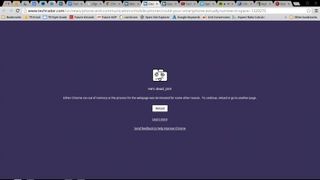
Considering this laptop goes for less than $300, it's tough to knock it too harshly for these hangups. For the general user – say, one rocking just one email client and doesn't bother with TweetDeck – this should be more than enough oomph. But if you're an internet power user like me, you might be staring at more spinning half-circles than you would like.
Unsurprisingly substandard screen
As with most Chromebooks, save for Google's Chromebook Pixel and the Acer C720P Chromebook's touch screens, Toshiba's entry is packing a just passable panel. At 1366 x 768, 720p video looks just fine on this display. Watching video at 1080p on this machine is a waste of a buffer.
That said, colors tend to hang on the blue side of the spectrum, which does wash out some red video and web pages. But, for under $300, you're getting a laptop that can play Netflix and Hulu Plus in HD (technically) with acceptable results. However, with rather narrow viewing angles and middling brightness, you might want to watch alone.
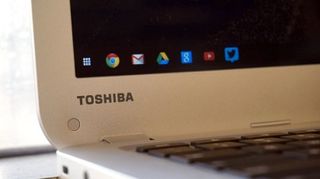
Just as the Toshiba Chromebook might struggle meeting the needs of the beastly browser user, this device is not intended for media mavens.
Shockingly solid inputs
Chromebooks might be budget devices, but Toshiba has its priorities straight, loading its Chromebook with a with a surprisingly snappy keyboard and smooth, responsive clickpad. Putting crummy inputs on a productivity machine like this would be a crime, a felony, even, but Toshiba is 100% not guilty here.
Toshiba wisely centered the plastic clickpad, leaving room for both palms on either side of the keyboard deck. While the keys have slightly squishy travel, they're well-spaced and textured to prevent your fingers slipping around.
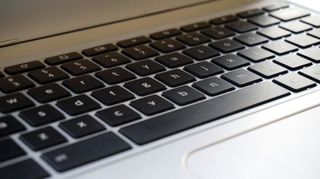
As with all Chromebooks, the top row of keys, basically your function buttons, are all dedicated to browser commands and Chrome OS functions. That makes sense, but I'm not so sure of the thinking behind swapping the Caps Lock key for one that summons the marginally useful app menu. I do like the over-sized Ctrl and Alt keys, though.
I witnessed zero issues swiping to and fro on this Chromebook's plastic clickpad, something I wish I could say about every Toshiba laptop I've used over the years. It even performed Chrome OS's small suite of multi-touch gestures without a hitch.
Bundled software
Unlike most mainstream laptops, you won't find any bloatware on a Chromebook. Hopefully Google will remain firm on this as the Chrome OS grows out of its early years.
Google doesn't allow for bloatware from its manufacturing partners, at least not yet. Then again, Chrome's app ecosystem is still nascent, given it's dependency on web apps. I wasn't struck as hard by this, since the majority of my everyday apps have web-based versions, and I'm a heavy Google Drive user.
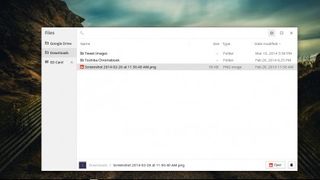
Until we start seeing more dedicated apps for Chrome OS. Google Drive will be your Microsoft Office or Apple iWork replacement. That's fine, since Drive remains unmatched as a cloud-based solution for real-time collaboration.
For absolutely nothing, you get access to a rather robust word processor, a presentation creation tool, a spreadsheet app (which does pale in comparison to Excel for power users), a form creator and a Paint-like drawing tool. All of these web-based apps are enhanced by real-time collaboration through live editing, chat and comments systems. Some of these apps also allow for offline use, with your changes uploaded once you're connected.
Joe Osborne is the Senior Technology Editor at Insider Inc. His role is to leads the technology coverage team for the Business Insider Shopping team, facilitating expert reviews, comprehensive buying guides, snap deals news and more. Previously, Joe was TechRadar's US computing editor, leading reviews of everything from gaming PCs to internal components and accessories. In his spare time, Joe is a renowned Dungeons and Dragons dungeon master – and arguably the nicest man in tech.
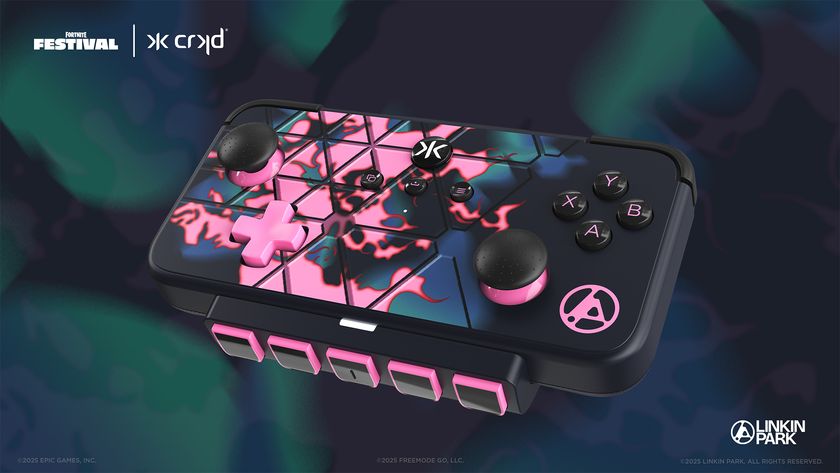
The CRKD Neo S Linkin Park Edition controller has me confusing what is real, but it absolutely is coming soon
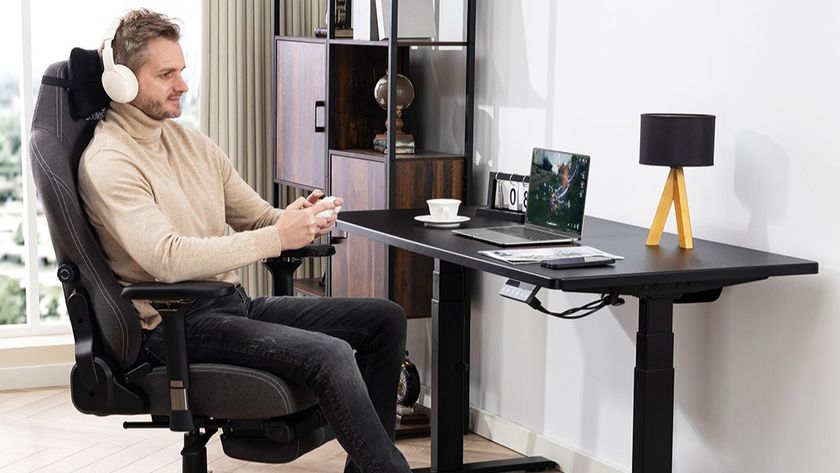
The Boulies MagVida looks like a great standing desk, but I'm most excited about its easy assembly process and free magnetic accessories
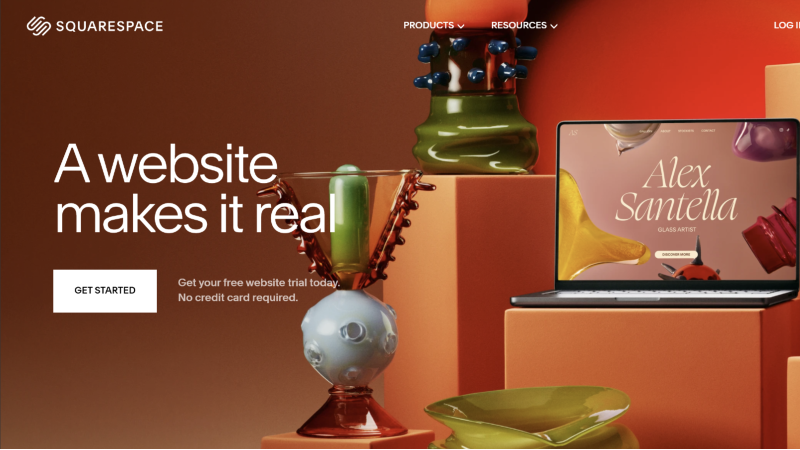
Build the website of your dreams with this exclusive Squarespace discount
